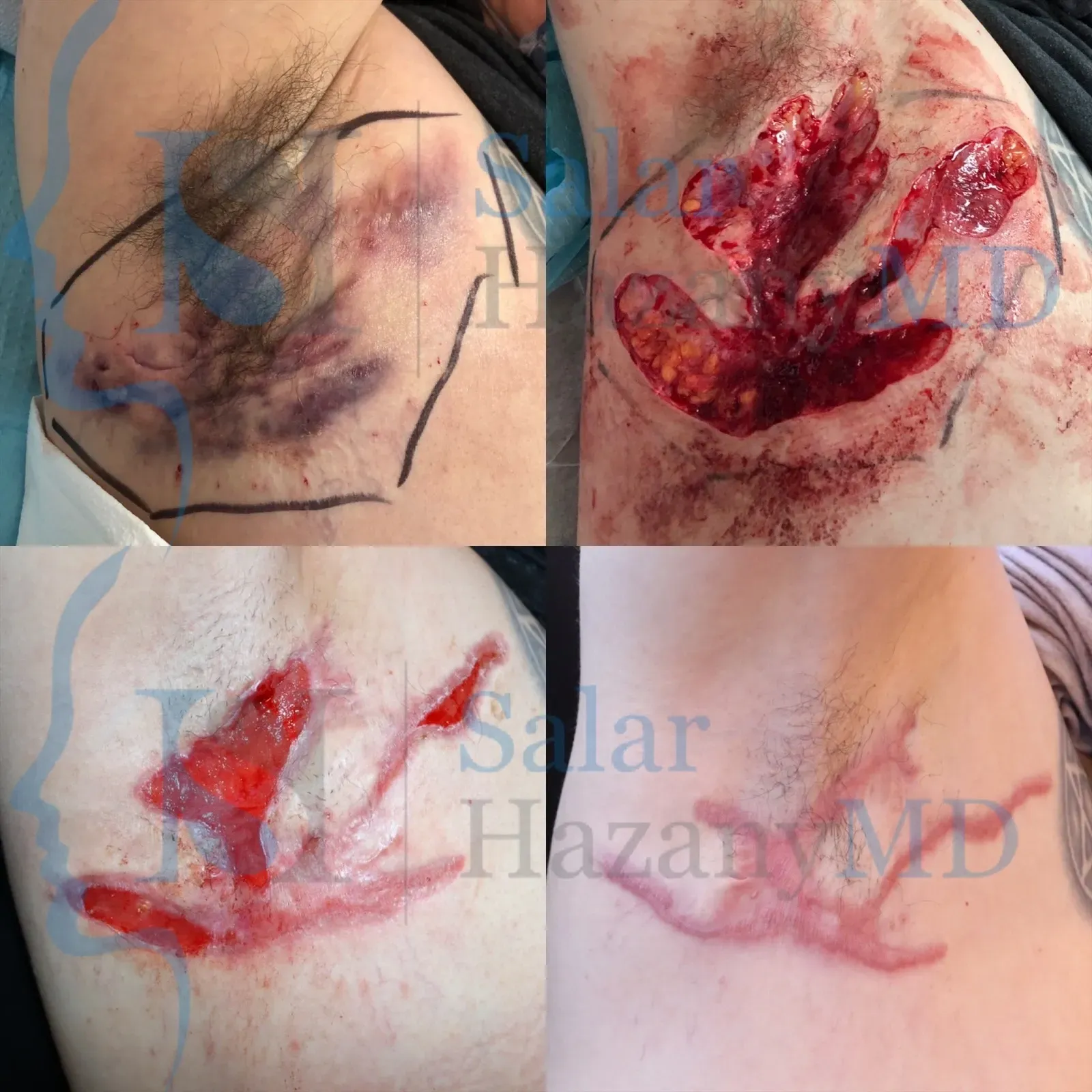Hidradenitis Suppurativa TreatmentBeverly Hills & Los Angeles
Expert Hidradenitis Suppurativa Treatment in Beverly Hills and Los Angeles
What is Hidradenitis Suppurativa?
Hidradenitis suppurativa (HS) is a chronic inflammatory skin condition. HS signs include small and painful bumps under the skin, especially in areas with many hair follicles and sweat glands. HS is also common in areas where there is frequent skin-to-skin contact such as the buttocks, groin area, inner legs, underarm area, and under the breasts.
Women are three times more likely to develop HS compared to men. Experts estimate that nearly 200,000 Americans suffer from moderate to severe HS.
What Causes Hidradenitis Suppurativa?
While experts are uncertain about the exact origins of HS, it is an immune-mediated disorder. Typically, HS results from an immune system overreaction that creates an imbalance of inflammatory proteins in the body. These proteins coalesce in the deeper layers of the skin and increase pressure under the skin. As pressure builds, abscesses containing pus develop. These abscesses can be painful and may rupture, increasing the chances of infection. HS's common misconceptions include it being contagious, sexually transmitted, and the result of improper hygiene; HS is not contagious, not an STD, and not the result of poor hygiene.
How is Hidradenitis Suppurativa Treated?
Dr. Hazany is a hidradenitis suppurativa (HS) specialist in his Beverly Hills dermatology clinic. While there is not yet a cure for HS, early diagnosis and treatment can mitigate symptoms, prevent the disease from becoming more severe, and prevent potential scarring. Mild or less severe cases of HS may respond well to at-home or over the counter treatments such as warm baths, topical cleansing and antiseptic agents, anti-inflammatory medications (e.g., ibuprofen, naproxen), and wearing loose-fitting clothes.
For more severe cases of HS that may cause pain and lesions, you may need a board-certified dermatologist to determine the proper course of treatment. Dr. Hazany will develop a treatment strategy for you that might include corticosteroid cream, anti-inflammatory medication, antibiotics, retinoids, hormonal modulation medication, and other medications. For more persistent cases of HS, Dr. Hazany might devise a treatment strategy that includes laser treatment, abscess draining, and excision.


